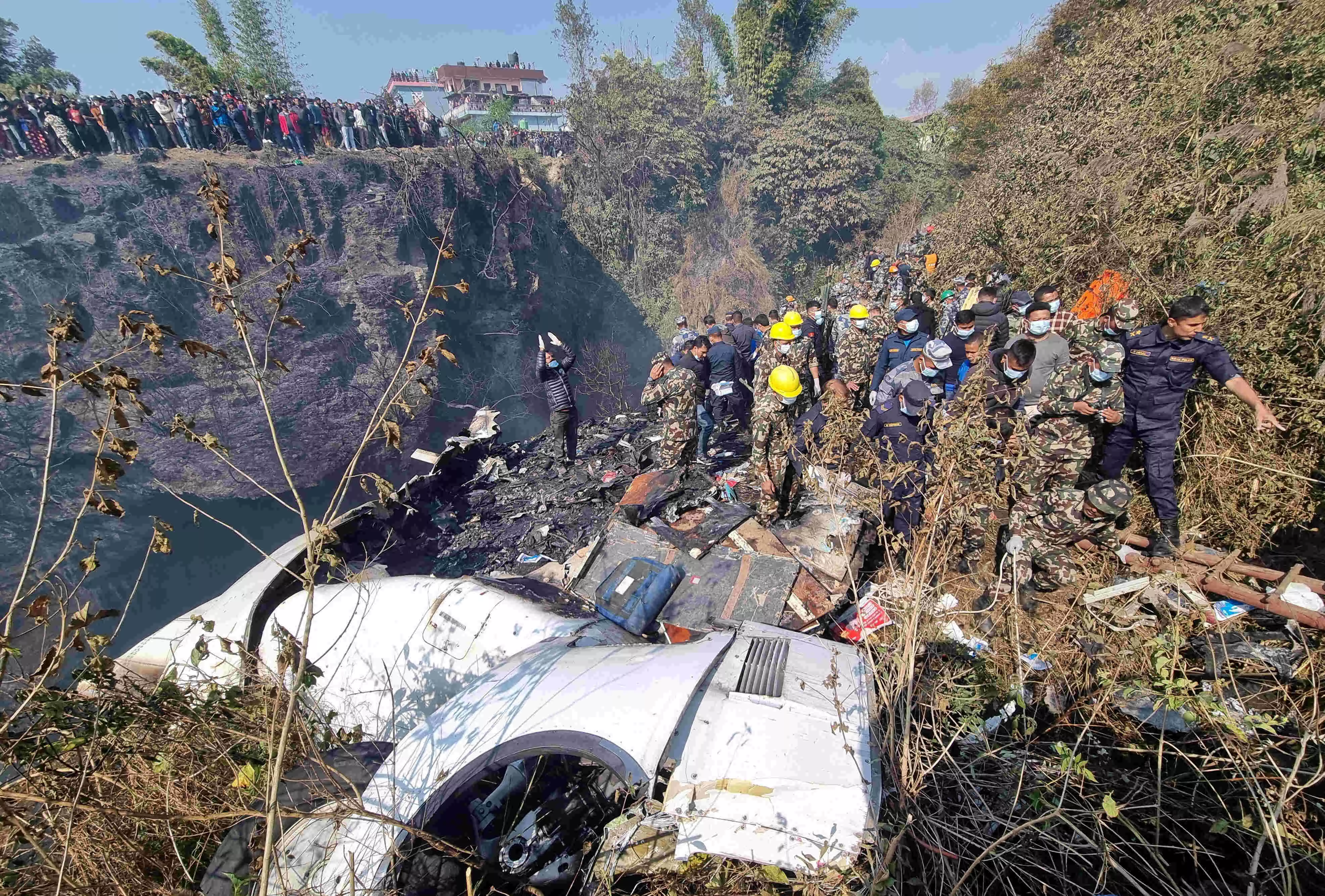Pitiable picture

68 lives are confirmed to have been lost following the plane crash in Pokhara International Airport, Nepal, while four bodies are yet to be recovered. Among the passengers, two were infants, four were crew members and at least 15 were foreigners — including five Indians. The horrific incident is the worst Nepal has witnessed over the past two decades but is not certainly an oddity. Nepal has had a long, dismal past in this regard, and whatever one may argue, it is not just a result of rough terrains and steep slopes. The long chain of air-travel-related accidents in Nepal is a fallout of negligent (bordering on deliberate) mismanagement of the airlines. The mismanagement had notoriously earned Nepali airlines a blanket ban in European airspace in 2013 after eight British nationals were killed in a Sita Air plane crash in 2012. Quite mysteriously, the legitimate concerns raised by the European Commission remain unaddressed 10 years down the line. It is high time that other countries, too, put appropriate international pressure on the country, or at least show some stringency to safeguard their own citizens. India lost five citizens in the current incident. In May last year, five Indians were among the 22 killed in an accident at Pokhara only. In 2018 also, 51 passengers were killed at Tribhuvan International Airport in a mishap in Kathmandu. In September 2011, ten Indians were among the 19 killed following the collision of a Buddha Air carrier with a hill. The tragic decade of the 1990s, too, saw the deaths of hundreds of people due to air-travel-related accidents. In sum total, there have been a total of 27 plane crashes in the past three decades. Also, since 2000, nearly 350 people have died in a plane or helicopter crash in Nepal, according to 'Reuters'. It is hard to swallow that many of these deaths were avoidable. It is extremely pertinent to understand what ails Nepal’s airline industry, and what holds the country’s regulator from bringing about a positive change in this regard. The prime contention, on which the European ban is also predicated, has been to draw a line of distinction between the service provider and the regulator. Presently, the Civil Aviation Authority of Nepal (CAAN) oversees both segments. As late as August 3 last year, the International Civil Aviation Organization (ICAO) formally urged the Nepali government to split the Civil Aviation Authority of Nepal (CAAN) into two separate entities, but to no avail. Inertia prevails despite the Nepal government committing to work on legislation to split CAAN way back in 2009, and titbit efforts then and now. The reported reason is the vested interests of various stakeholders, including CAAN members and international flight operators. Apart from the loss of lives, the bottlenecks are bleeding Nepal’s economy dry. The country’s aviation industry is losing huge chunks of revenue on account of the European ban. Nepal’s tourism industry, too, has taken a hit, as a significant proportion of visitors come from Europe. The envisaged “Visit Nepal decade, 2023-2033” goal will find it hard to fructify unless a course correction is made. The inaction could be traced to the conflict of interest arising from the synergy between regulation and service provisioning. Apparently, the bosses at the CAAN are finding it hard to wield power in favour of a safer aviation sector. The inaction may also be coinciding with the profitability of some online flight operators. In addition to misgovernance, the rough mountainous terrain, lack of investment in new planes etc. significantly contribute to the problem. These aspects need to be addressed at the earliest if further loss of lives is to be avoided. The perpetuation of irregularities in the aviation sector of Nepal presents a pitiable picture. More disturbing is the lack of any credible reason behind such perpetuation. Countries around the world need to safeguard their citizens and, within permissible limits, put international pressure on Nepal to overhaul its aviation industry. Mere words of shock and grief will not do.



